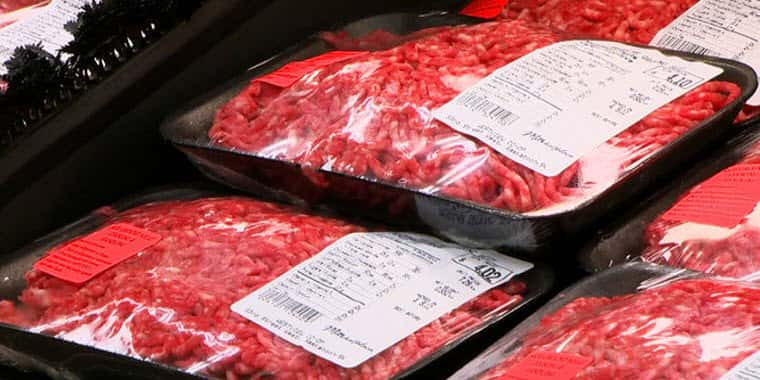by Chris Clayton, DTN Ag Policy Editor
In its latest filing with the World Trade Organization over country of origin labeling, the U.S. Trade Representative's Office argues Canada and Mexico just slightly over-calculated their market losses and threatened sanction values to the tune of about $3 billion.
Canada argues that the level of suspension should be $2.41 billion ($3 billion CDN). Mexico proposed its markets have been affected by $713 million per year. In its analysis, USTR states any potential punitive tariffs shouldn't be more than $43.22 million for Canada and $47.55 million for Mexico.
In total, the USTR argues the maximum injury suffered by Mexico and Canada comes in at just under $91 million a year.
The U.S. lost its arguments at the World Trade Organization over country of origin labels for meat based on arguments from Canada and Mexico that the labels led packers and feeders to discriminate against Canadian and Mexican livestock. (USDA never adequately explained why these arguments never merited a Packers & Stockyards case if indeed discriminatory actions did take place.)
Nonetheless, COOL now hangs on in arguments in the U.S. Senate to either kill it outright or convert it to a voluntary program because the punishment that could come from Canada and Mexico is so great. Yet, if the USTR prevails in its arguments, the punitive tariffs would actually be less than the U.S. paid annually in the Brazilian cotton case, which amounted to $147 million a year from 2010-2013 with a $300 million balloon payment in 2014 to end the penalties.
In its analysis filed with the WTO last week, the USTR argues there are fundamental legal errors and flawed methodologies in the impact assessments by Canada and Mexico. USTR states the estimates of lost revenue and price suppression “are unsupportably high, dwarfing the current export value of livestock and in no way reflecting the 'benefit' impaired by the amended COOL measure.”
Canada claims export revenue losses of $1.61 billion even though its total exported value of affected livestock in 2014 was $1.74 billion, the second highest level after 2007, which was before the economic recession. Canada claims the value of its exports would be 92{62211894bbe3543ea27fa51e74e3ab79f2baeee0f4cbac9ff4b15b5bf1d81fd0} higher if the U.S. didn't have COOL. Mexico claims its export losses are $514.8 million and would be almost 70{62211894bbe3543ea27fa51e74e3ab79f2baeee0f4cbac9ff4b15b5bf1d81fd0} higher if not for COOL.
Combined, Canada and Mexico project U.S. livestock imports would be 74{62211894bbe3543ea27fa51e74e3ab79f2baeee0f4cbac9ff4b15b5bf1d81fd0} higher than now. USTR counters that neither Canada nor Mexico's estimated trade impacts appear to be based on market realities of trade and livestock markets.
Then both Canada and Mexico argue that they have faced “price suppression losses” in their domestic markets because of that depressed export market to the U.S. Canada argues its value losses are $806 million a year while Mexico argues a price suppression impact of $199 million.
The U.S., in its arguments, points out that in the past, WTO dispute panels have rejected arguments about economic losses that did not have hard evidence or were too speculative or not meaningfully qualified. Claims of losses can be due to other circumstances rather than just due to a casual link to an inconsistent rule.
USTR points to other factors that have impacted livestock markets before and after COOL, including drought in the U.S. Southwest and in Mexico from 2011-14, the outbreak of bovine spongiform encephalopathy in 2003 in Canada and the porcine epidemic diarrhea virus that hit U.S. hogs in 2013. Then there was the economic recession from 2007 to 2009.
USTR used different studies and summaries to come to significantly different conclusions on potential concessions than numbers used by Canada and Mexico. The analysis actually shows greater economic impact on Mexican cattle feeders than Canadian cattle and hogs. Rather than billions, USTR agues any authorized concessions for Canada should not exceed $43.22 million and concessions for Mexico should be $47.55 million.
USTR also noted that the U.S. doesn't consider full repeal of COOL to be the only option for compliance.
© Copyright 2015 DTN/The Progressive Farmer. All rights reserved.




